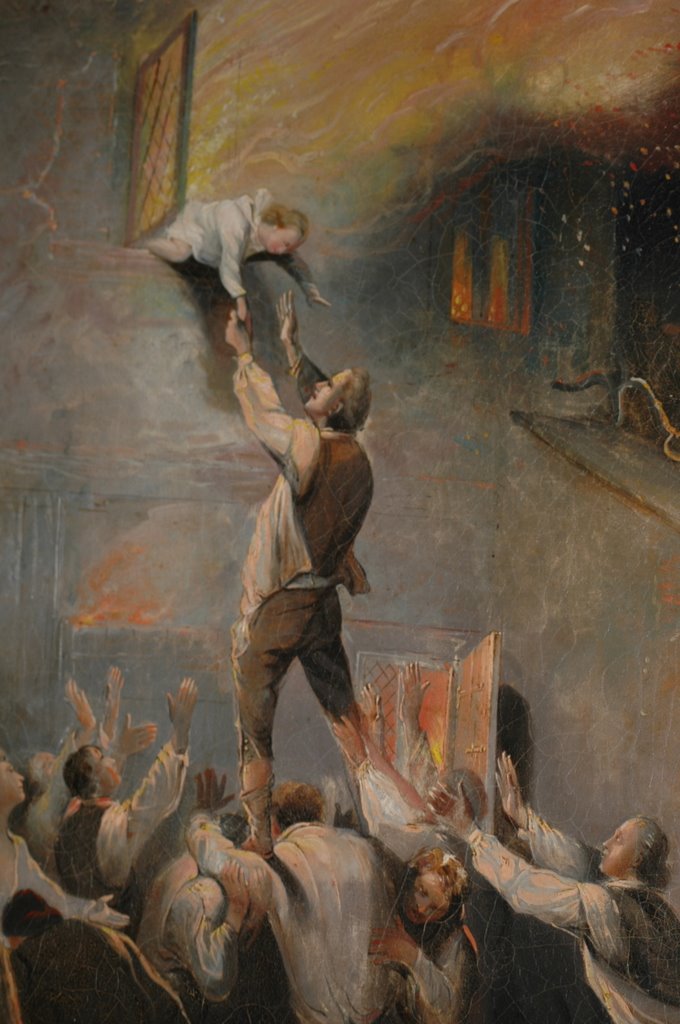There is no shortage of
anecdotes and quotes from the courageous life of missionary David Livingstone
(1813-1873), who blazed a trail through much of uncharted Africa to evangelize
the natives. During his expeditions he survived being mauled to death by a
lion, several bouts with malaria, hostile African tribes, horrific ulcers on
his feet and constant struggles with IBS. On one of his fundraising trips back
in England a reporter asked him if he feared all the danger in Africa, to which
he replied, “I am immortal until the will of God for me is accomplished.”
Stonewall Jackson
(1824-1863), the Confederate Civil War general, also shared a similar view. He
wrote in one of his journals, “My religious belief teaches me to feel as safe
in battle as in bed. God has fixed the time for my death. I do not concern
myself about that, but to be always ready.”
These quotes about the sovereignty
of God reminded me of a story from the life of John Wesley (1703-1791). His
father Samuel Wesley was a dedicated pastor in Epworth, England, but there were
many who opposed his preaching. On February 9, 1709, a fire broke out in the
rectory at Epworth, possibly set by one of the pastor’s enemies.
Young John, not yet six
years old, was stranded on an upper floor of the building. Two neighbors
rescued the lad just seconds before the roof crashed in. One neighbor stood on
the other’s shoulders and pulled young John through the window. Afterward,
Samuel Wesley said, “Come, neighbors, let us kneel down. Let us give thanks to
God. He has given me all my eight children. Let the house go. I am rich
enough.”

When he grew into the
powerful evangelist, John Wesley often referred to himself as a “brand plucked
out of the fire” (Zech. 3:2; Amos 4:11). In later years he often noted February
9 in his journal and gave thanks to God for His mercy in sparing him. Samuel
Wesley labored for 40 years at Epworth and saw very little fruit, but consider
what his family accomplished!
John traveled a quarter of
million miles in the days of horse and buggy, preached 40,000 sermons and saw
thousands submit their lives to Christ. His brother Charles Wesley composed
over 8,000 hymns, many of which are still being sung by believers today.[1]
The Wesley brothers didn’t
die in the fire because it wasn’t their time yet. God still had much more to accomplish
through them. We can take comfort friends that God is absolutely sovereign over
our days here on earth. David wrote in Psalm 139:16, “Your eyes saw my
substance, being yet unformed. And in Your book they all were written, the days
fashioned for me, when as yet there were none of them.” Job uttered a similar
thought, “Since his days are determined, the number of his months is with You; You
have appointed his limits, so that he cannot pass” (14:5). Ecclesiastes 3:1-2
also reminds us, “To everything there is a season, A time for every purpose
under heaven: A time to be born, and a time to die.”
The days of our lives are
marked out on God’s calendar and we shall not receive one day more or one day
less than what we are allotted. Now that may not seem like a cheery thought to
you, and in fact, most people would find that sobering, at best, and
frightening, at worst. However, if we correctly understand this profound truth,
then we are freed from the fear of death to fully live the life that God has
planned for us. God has our days planned by appointment not accident. God’s
timing is always perfect—even in death. You can never be in the wrong place at
the wrong time. Every activity of mankind has a proper time and a predetermined
duration. Our lives will be a lot less stressful if we recognize that the
omniscient hand of God has appointed a time when things are to be done, and He
has a predetermined duration for those things to last.
So, if you are reading
this then it means that you still have time and God is not done with you yet!
Let’s use the time we have been given to plan and prepare for eternity. -DM
[1]
Warren Wiersbe, Wycliffe Handbook of
Preaching and Preachers, (Chicago: Moody Press, 1984), 251.
No comments:
Post a Comment